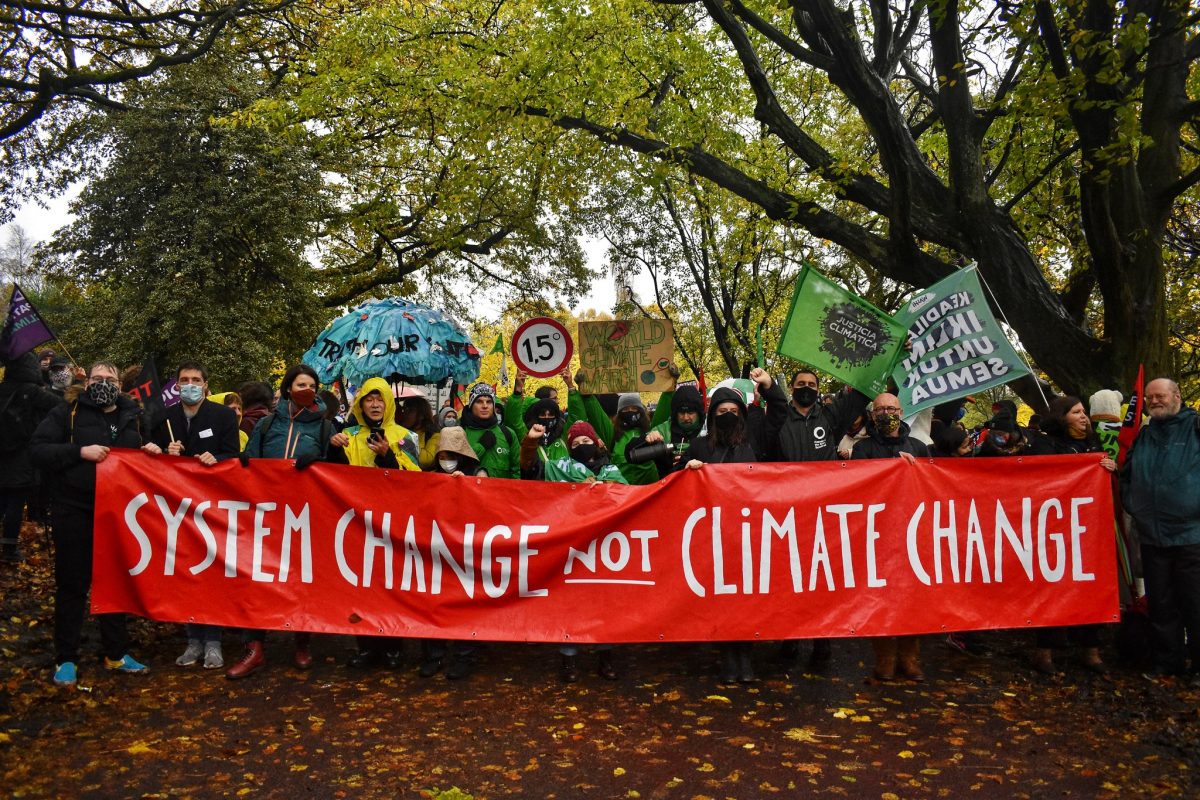
Scottish Government says no to UK fracking plans
Commenting on the Scottish Government’s announcement today that it is objecting to UK Government plans to make it easier to frack for shale gas north of the border, Friends of the Earth Scotland Director Dr Richard Dixon said:
“We are delighted that the Scottish Government is saying no to UK Government plans to remove people’s rights to stop, or even be notified about, shale gas fracking underneath their homes. The UK Government is falling over itself to get fracking going, all credit to Scottish Ministers for having more respect for Scottish communities.
“The Scottish Government’s more cautious approach to unconventional gas extraction is good news for the people of Scotland and bad news for any operators hoping to make a quick buck before the shale bubble bursts. The United Kingdom government has been completely gung-ho for fracking the whole country but this puts a spoke in the works because it won't be able to make this change in Scotland.
“This is a very clear message to the fracking industry that Scotland is a place where it will be much harder to do business.”
The UK Department for Energy and Climate Change’s proposal would remove the existing requirement on operators to seek permission from each home or land owner it wishes to drill or frack for shale gas underneath. This means not only would peoples’ rights to withhold permission to frack underneath their homes be removed, but even the right to be notified about it.
The plans are intended to apply across the whole of the UK with Whitehall using reserved powers to implement the changes in the devolved administrations. The Scottish Government has today indicated that changes of such significance should be a matter for the Scottish Parliament.
Dr Dixon continued:
“Unconventional gas exploitation isn’t some far off prospect that gives Government time to play with to get things right. Communities in Scotland are facing commercial coalbed methane extraction on their doorsteps in the coming months.
“People across the UK from Balcombe to Belcoo are already seeking to protect their homes and communities from this dangerous, damaging industry. The UK Government’s plans to take away people’s rights to object are an extremely worrying development.”
“The Scottish Government should say no to the unconventional gas industry altogether and focus instead on making the most of our abundant, clean, renewable energy resources.”
ENDS
Notes to Editors
1. Scotish Government press release: “Ewing objects to UK plan to drill under homes without consent” http://news.scotland.gov.uk/News/Ewing-objects-to-UK-plan-to-drill-under-homes-without-consent-fd1.aspx
BBC online report: “Minister opposes change in fracking residential drilling rules“ http://www.bbc.co.uk/news/uk-scotland-28792721
The UK Department for Energy and Climate Change consultation is available at: https://www.gov.uk/government/consultations/underground-drilling-access
DECC’s plans to remove landowners rights to refuse access to companies who wish to drill and frack for onshore hydrocarbons underneath their property apply to shale gas and oil. They do not apply to coalbed methane or underground coal gasification as access right already exists under the Coal Industry Act 1994.
Friends of the Earth are encouraging people to object: http://act.foe-scotland.org.uk/lobby/frackaccess Over 1700 emails have been sent to MSPs so far.
2. In June the Scottish Government announced the tightening of planning rules on unconventional gas extraction, including the requirement of buffer zone protection for communities and sensitive ecological areas. See http://www.foe-scotland.org.uk/node/1844
3. The British Geological Survey recently published a study of the shale gas and oil potential of the Midland Valley (Scotland’s central belt) found there to be around only 5% of the shale gas resource in the Bowland Shale in northern England, and a quarter of the official estimates of recoverable oil in the north sea. However the report does not indicate how much of the gas or oil resource is recoverable, only that the complex geological formations of the central belt and lack of seismic data mean there is significant uncertainty, and make exploitation extremely challenging. Recoverability estimates tend to be in the range of less than 1% – 5%. https://www.gov.uk/government/publications/bgs-midland-valley-of-scotland-shale-reports
4. DECC launched the 14th onshore oil and gas licensing round on 28th July 2014 in which 20,000 square km in Scotland are offered to tender for shale gas fracking and other hydrocarbon exploitation, FoE’s reaction is here: http://www.foe-scotland.org.uk/offered-central-belt-fracking
5. Cuadrilla has indicated that it needs to frack 40 wells over 5 years to establish whether there is an economically viable shale gas resource in northern England. Should companies seek to explore for shale gas or oil in Scotland, communities here will face the same prospect of being fracked for years only for operators to confirm there is no economically viable resource. http://www.telegraph.co.uk/finance/newsbysector/energy/oilandgas/10611490/UK-needs-40-fracking-wells-to-see-if-shale-gas-is-viable-says-Lord-Browne.html
6. Thousands of people in Scotland are currently opposing plans for coalbed methane extraction in their communities, an industry that has very similar impacts to shale gas fracking, and can often involve the use of fracking. Dart Energy’s proposal for commercial coalbed methane extraction at Airth remains the most advanced onshore unconventional gas project in the UK. The Department for Planning and Environmental Appeals is currently taking further evidence on the new planning policy before making a decision on that application. Dart Energy recently agreed to a buy out by the UK’s biggest fracking company, IGas. The deal is expected to be finalised in September.
7. The report of the Independent Expert Scientific Panel on Unconventional Oil & Gas is available at: http://www.scotland.gov.uk/Publications/2014/07/1758. Friends of the Earth Scotland’s Director, Dr Richard Dixon, and Head of Campaigns, Mary Church, gave evidence to the Panel in February.
8. Friends of the Earth Scotland is
* Scotland's leading environmental campaigning organisation
* An independent Scottish charity with a network of thousands of supporters and active local groups across Scotland
* Part of the largest grassroots environmental network in the world, uniting over 2 million supporters, 77 national member groups, and some 5,000 local activist groups.
